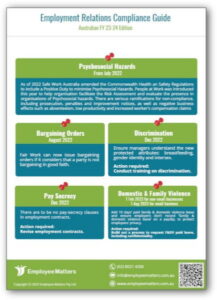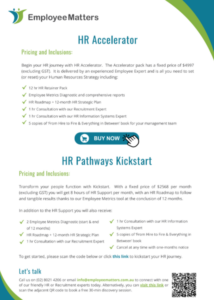There has been a lot of news lately about businesses both in Australia and abroad intending to force their workers back into the office either full or part time. The reasons for this move can range from a perceived loss of productivity and creativity and gripes from high profile CEO’s around outright malingering.
Despite these well publicised exceptions, many organisations and employees alike have taken enthusiastically to remote and hybrid working models, with these becoming standard rather than the exception. Job seekers today are not just looking for competitive salaries and benefits—they are prioritising flexibility as a crucial factor in their job search.
Companies that fail to provide flexible work arrangements risk losing top talent to organisations that recognize and meet the needs of the modern workforce.
Flexibility can take many forms, including:
- Remote Work – Allowing employees to work from home full-time or part-time.
- Flexible Hours – Offering core hours while letting employees set their own start and end times.
- Compressed Workweeks – Allowing employees to complete their workload in fewer days.
- Job Sharing & Part-Time Roles – Providing options for those who need reduced hours.
Why Candidates Value Flexibility
Today’s job seekers view flexibility as essential for multiple reasons:
- Work-Life Balance: Employees with the ability to adjust their schedules can better manage personal and family responsibilities without sacrificing productivity.
- Mental and Physical Well-Being: Eliminating long commutes and rigid office hours reduces stress and enhances overall well-being.
- Increased Productivity: Many workers find they are more efficient when they have control over their work environment and schedule.
Access to More Opportunities: Flexible work allows professionals to seek jobs outside their immediate geographic location, broadening their career prospects.
How Employers Can Adapt
Companies that embrace flexibility stand to gain in many ways, from improved employee satisfaction to better retention rates. Here’s how employers can implement and promote flexible work policies:
- Offer Remote or Hybrid Work Models – If in-person work is necessary, consider hybrid models where employees come in only when required.
- Remote and Hybris Onboarding Programmes - Rejig your onboarding process to include remote working considerations (download our free Working From Home Pack for a comprehensive overview)
- Trust Employees – Focus on results rather than micromanaging working hours.
- Leverage Technology – Use collaboration tools to ensure teams remain connected and productive.
- Clearly Communicate Expectations – Define policies around flexibility so employees and managers are on the same page.
- Regularly Review and Improve Policies – Gather employee feedback and adjust flexible work arrangements accordingly.
- Psychometric Testing - Employee Matters partners with Harrison Assessments to offer candidate job success analysis reporting. Harrison offers an additional Remote Work and Remote Leadership Analysis module for employees and managers which identifies strengths and weaknesses specific to a remote working environment. The module can be completed during the hiring process or as a development tool.
The Future of Work Is Flexible
Flexibility isn’t just a passing trend—it’s the future of work. Employers that resist adapting may struggle to attract and retain skilled workers, while those that embrace flexibility will gain a competitive edge. By prioritising flexibility, companies can create a happier, more engaged, and more productive workforce that thrives in the modern job market.
Employee Matters has an entirely remote workforce and has been an early adopter of this model since the business started in 2011. This means we have a perspective and expertise that comes from years of experience in successfully managing a country wide remote team. See what our Managing Director had to say on this topic on the Channel 7 Sunrise program.
Get in touch for a complimentary discussion about how we can help you with managing remote and hybrid employees and aligning your Remote Working Policy with your and your employees’ needs, and much more:
- Phone: 02 8021 4206
- Email: info@employeematters.com.au
- Book a Free Call
Employee Relations Legislation Changes Hub
There is a significant amount of mandatory Employment Relations legislative change that impacts you and every other business in Australia now. Our resource hub is designed to help you understand these wide-ranging changes.

HR ACCELERATOR
HR Accelerator is a turbo charged package that ensure that ALL your HR needs can be addressed at the lowest possible price, plus it comes with some expert guidance on recruitment and HR Systems.
✔️ Obtain ER Legislative compliance where needed
✔️ Solve recruitment and HR headaches
✔️Customised HR Roadmap + 12-month simple to follow HR Strategic Plan
✔️ Identify gaps and work with our experts to close them
✔️ Obtain vital insights thanks to our own Employee Metrics reporting

Need HR/Recruitment Support?
Call (02) 8021 4206 or email info@employeematters.com.au to discuss your HR, Recruitment or ER Legislation challenges with an experienced member of the Employee Matters team.
Alternatively, you can book a free call by completing the adjacent form:
